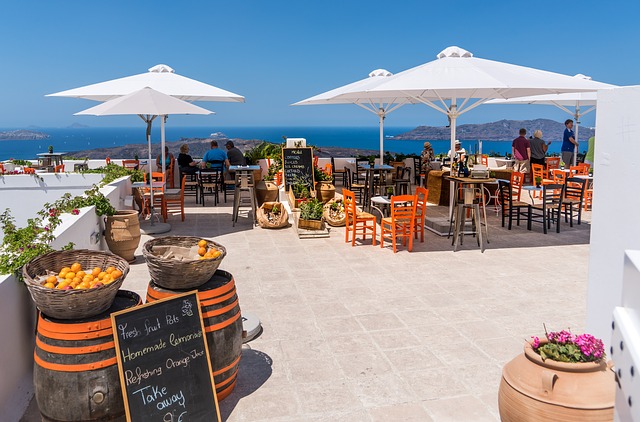
Image by Mariamichelle CC0
If you have to watch what you eat for health reasons, going on holiday can throw up a whole host of food-related challenges. This month we are focussed on sharing helpful information for those who can’t eat gluten.
Get location specific advice
Coeliac.org.uk has some excellent country-specific information sheets to help gluten-free holidaymakers ensure their food is safe to eat. This includes information about the cuisine, local coeliac groups and useful phrases you can show to those in charge of your food. For example, when visiting Vietnam:
I suffer from an illness called coeliac disease and have to follow a strict gluten-free diet, or I may become very unwell. Tôi bị một căn bệnh gọi là bệnh celiac và phải tuân theo một chế độ ăn không có gluten chặt chẽ, nếu không tôi có thể trở nên rất khó chịu trong người.
Make your dietary needs clear when booking EVERYTHING
Whether it is your flight, a hotel, or a restaurant, state your needs clearly when booking. This not only gives your host more time to ensure your needs can be met, but will also mean you are more likely to get a decent gluten-free meal.
Double check your dietary needs have been understood when you arrive
Remind the person that you booked with that you are the gluten-free individual, or ask to speak to the chef to make sure that your needs have been taken seriously and that you will be served food that won’t make you ill.
Pack essential foods
Things don’t always go to plan, so pack bare essentials you know you can eat. Take your own gluten-free breads and pastas for example, not just snacks. There aren’t many establishments that will deny someone breaking out their own gluten-free bread roll if they aren’t able to cater for their needs.
But do check that you can take them into the country!
Some countries have strict policies on what foods can be brought in. Check with your airline, and also ask your GP to write a cover letter explaining the importance of these foods for your health.
Go to Italy – it is a top gluten-free destination!
Ok, so this is the home of pasta and pizza dishes, so how can it be so good for those who need to avoid gluten? Well, there was a national coeliac screening programme that raised awareness of coeliac disease, and in turn educated a whole country on the importance of gluten-free menus and preparation areas. The Italian Coeliac Society, understanding that gluten based foods are a staple in every Italian household then set about publishing a list of eateries and B&Bs in the country that are certified gluten-free.
Talk to your travel insurance provider
As a coeliac, you must make sure that you tell your travel insurance provider about your condition. As a general rule a customer with a medical condition (or several) can declare their recent medical history and current situation and if the condition is stable and well controlled, not awaiting investigation or treatment, for example surgery, then the condition can be covered.
At Worldwideinsure.com for a condition such as Coeliac, we are able to cover customers with a stable condition, including those with Stomas, provided they haven’t had an unplanned hospital admission in the last 6 months.
For more information please see Travel Insurance Medical Conditions.
Choose self-catering
If you can’t trust what other people might serve you, then you can ease the stress and opt to cook up your own gluten-free cuisine on a self-catering basis. While you’ll have to be patient and shop carefully for ingredients, it is a great way to learn a few new words. Life is made a bit easier if you are holidaying in the EU, as the packaging has to have the same labelling information that we are used to in the UK, where allergens are written in bold.
Opt for a resort
Resorts are more likely to cater for a variety of dietary needs, and are more likely to be familiar with the seriousness of cross-contamination. Another bonus is that they are also more likely to have nutrition sheets where every dish has its ingredients explained in minute detail.
*** Please Note ***
Policies, terms and conditions may change – all information published in this blog pertaining to travel insurance from worldwideinsure.com is only deemed valid at the time of publication.
